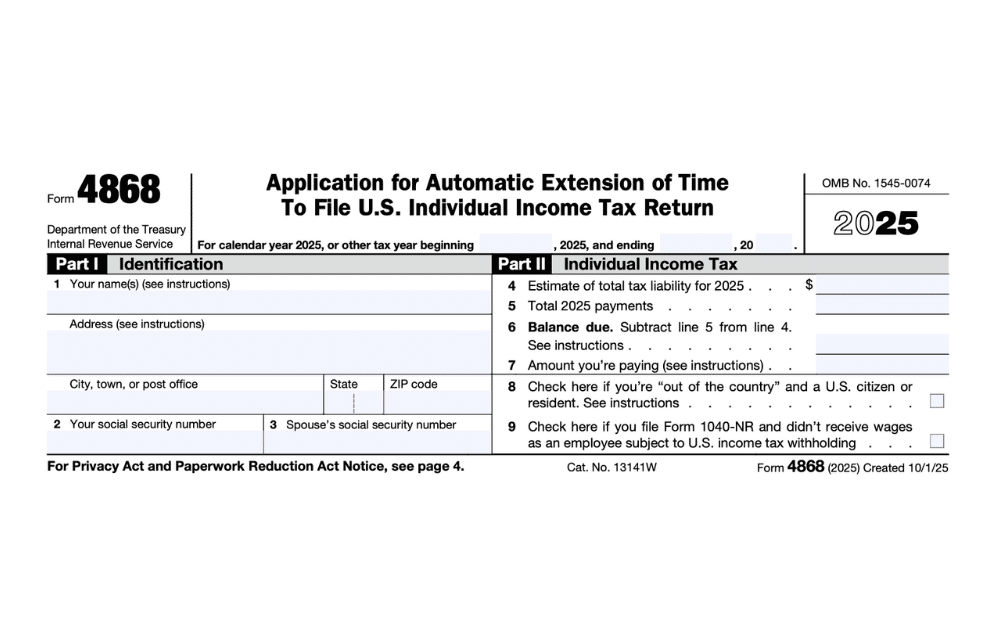I’ve Never Filed Taxes as an Expat. What Do I Do?

- Am I in Serious Trouble for Never Filing?
- Do I Actually Need to File US Taxes from Abroad?
- What Penalties Am I Facing for Not Filing?
- Will I Actually Owe Money After All These Years?
- How Do I Catch Up Without Penalties?
- What’s the Step-by-Step Process for Streamlined if I’ve Never Filed Taxes?
- What If My Situation Is Complicated?
- What Happens If I Don’t File After Learning I Need To?
- Should I Try to Catch Up on My Own or Get Help?
- What Are My Next Steps Right Now?
- How Greenback Helps You Get Back on Track
You can catch up penalty-free through the IRS Streamlined Filing Compliance Procedures, and most expats discover they owe little to no US taxes after applying available protections. According to the IRS Streamlined Filing Procedures documentation, this program was specifically designed for taxpayers whose failure to file was non-willful – meaning you simply didn’t know about your filing obligations.
If you’re reading this, you’re likely feeling a mix of anxiety and relief. Anxiety because you’ve discovered you should have been filing US tax returns all along. Relief because you’re finally taking steps to fix it. Here’s what you need to know right away: the IRS designed specific procedures for expats in your exact situation, most people in your position owe far less than they fear after applying expat protections, and thousands of Americans abroad catch up every year without facing expat penalties.
This guide provides your complete roadmap to catching up safely and moving forward with peace of mind.
Am I in Serious Trouble for Never Filing?
The most common fear we hear from expats who’ve never filed is: “Am I in serious trouble?”
The honest answer is: probably not, and here’s why.
The IRS recognizes that many Americans living abroad are unaware of their U.S. filing obligations. They created the Streamlined Filing Compliance Procedures specifically for non-willful cases where people didn’t know they needed to file. This isn’t an audit program or an investigation. It’s a penalty-relief program designed to help you get compliant.
Most expats discover they owe little to no US taxes once they apply the robust protections available. The filing obligation is fundamental, but the actual tax owed is often minimal or zero. This is why getting current matters, but it’s also why you can breathe easier knowing that compliance rarely comes with a devastating tax bill.
The key is acting now, before the IRS contacts you. Once they reach out first, your options become more limited.
Do I Actually Need to File US Taxes from Abroad?
The first step is confirming whether you’re legally required to file US tax returns. As an American citizen or green card holder, you must file if your worldwide income meets these thresholds:
2025 Tax Year Filing Thresholds (filed in 2026):
- Single: $15,000
- Married Filing Jointly: $30,000
- Married Filing Separately: $5
- Head of Household: $22,500
- Self-employment income: $400 or more
What Counts as Income?
Your worldwide income includes all sources, regardless of where earned:
- Employment wages and salaries
- Self-employment and business income
- Investment income and capital gains
- Rental property income
- Pension and retirement distributions
- Foreign government benefits (which may be taxable)
Even if your income falls below these thresholds, you may still benefit from filing to establish a compliance record, claim refundable tax credits, and start the statute of limitations clock.
If you’ve never filed before or aren’t sure what you owe, our team is here to help you start.
What Penalties Am I Facing for Not Filing?
Understanding the actual consequences helps you see why getting current now is both urgent and manageable.
If You Don’t Owe Taxes After Applying Protections
If you don’t owe any US taxes after applying the Foreign Earned Income Exclusion and Foreign Tax Credit, the IRS typically doesn’t impose failure-to-file penalties. However, you should still file to establish a compliance record, claim any refunds you’re owed (available for up to three years from the original due date), and qualify for certain tax benefits.
If You Do Owe Taxes
The penalties are real but limited:
- Failure-to-File Penalty: 5% of unpaid taxes per month, up to 25% maximum
- Failure-to-Pay Penalty: 0.5% of unpaid taxes per month, up to 25% maximum
- Interest: Accrues on unpaid taxes from the original due date
Both penalties apply simultaneously, but the combined penalty is capped at 5% per month.
FBAR Penalties: The Bigger Concern
If you had foreign bank accounts totaling over $10,000 at any point during the year and failed to file Foreign Bank Account Reports (FBARs), penalties can be severe:
- Non-willful violations: Up to $12,921 per violation per year
- Willful violations: Greater of $129,210 or 50% of account balance
This is precisely why the Streamlined Filing Procedures matter so much. They eliminate these penalties for non-willful cases.
Will I Actually Owe Money After All These Years?
Before you panic about owing back taxes, understand the powerful protections available to expats.
Foreign Earned Income Exclusion: Your First Line of Defense
- 2025 Exclusion Amount: $130,000 per person
- 2026 Exclusion Amount: $132,900 per person
- Best for: Expats in low-tax countries or those with no foreign taxes paid
Real-world example: Sarah lives in Dubai (no income tax) and earned $95,000 last year. Using the FEIE, she excludes her entire salary and owes $0 in US taxes. She’s been living there for four years without filing. After using Streamlined Filing to catch up on three years of returns, she owes zero in back taxes and zero in penalties.
To qualify for the FEIE, you must pass either the Physical Presence Test (330 days outside the US in any 365-day period) or establish Bona Fide Residence in a foreign country.
Foreign Tax Credit: For High-Tax Countries
- How it works: Dollar-for-dollar credit for foreign taxes paid
- Best for: Expats in high-tax countries like Germany, France, the UK, Canada, Australia
Real-world example: John lives in Germany, earns $80,000, and pays $25,000 in German taxes. His US tax liability would be $12,000, but the Foreign Tax Credit completely eliminates it, leaving him with $13,000 unused credits he can carry forward for up to 10 years. John hadn’t filed for six years. After catching up through Streamlined Filing, he discovered that not only did he owe zero, but he had also accumulated credits that he could use for years to come.
Can I Use Both Protections?
Yes! Many expats benefit from strategically combining both:
- Use the FEIE to exclude earned income up to the threshold
- Apply the Foreign Tax Credit to investment income and amounts over the exclusion
- Carry forward unused credits for up to 10 years
The Foreign Earned Income Exclusion (FEIE) and the Foreign Tax Credit (FTC) are both strong tools for expats, but they CANT apply to the same income at the same time.
A smart approach is to use FEIE for your earned wages and reserve the FTC for other types of income that aren’t eligible for the exclusion, like investment or rental income.
Used together this way, they help reduce taxation burden and keep your overall tax bill as low as possible.
How Do I Catch Up Without Penalties?
The IRS Streamlined Filing Compliance Procedures provide a penalty-free path to get current on your tax obligations. This program was specifically designed for expats who were unfamiliar with their filing requirements.
What Does “Non-Willful” Mean?
According to the IRS, non-willful conduct is “conduct that is due to negligence, inadvertence, or mistake, or conduct that is the result of a good faith misunderstanding of the requirements of the law.”
Common non-willful reasons:
- You didn’t know US citizens had to file from abroad
- You thought living abroad exempted you from US taxes
- Your foreign employer didn’t mention US obligations
- You received incorrect advice from a non-specialist
- You were overwhelmed and kept putting it off
- You assumed you didn’t owe anything so you didn’t need to file
What’s NOT non-willful:
- Deliberately hiding income
- Intentionally not filing after learning about the requirement
- Lying about your situation on the certification
What Do I Need to File?
The Streamlined Procedures (for expats) require:
- Tax Returns: Last 3 years of Form 1040
- FBARs: Last 6 years of Foreign Bank Account Reports
- Certification: Form 14653 statement that your failure to file was non-willful
- Payment: Any taxes owed (which is often minimal or $0)
What’s the Step-by-Step Process for Streamlined if I’ve Never Filed Taxes?
Step 1: Gather Your Documentation
- Foreign income statements and pay stubs
- Bank statements showing foreign account balances
- Foreign tax documents and payment records
- Any US income documents (1099s, W-2s from US sources)
Step 2: Prepare Your Returns
- File returns for the last three tax years
- Claim appropriate foreign income exclusions and credits
- Include Form 2555 (FEIE) and/or Form 1116 (FTC)
Step 3: File Your FBARs
- Submit FinCEN Form 114 for each of the last six years
- Report all foreign accounts exceeding a $10,000 aggregate balance
Step 4: Submit Your Certification
- Complete the non-willful certification (Form 14653)
- Explain in your own words why you failed to file
How Long Does It Take?
- Processing time: 6-12 months for IRS review
- Penalties under Streamlined: None for tax returns, typically waived for FBARs
- Cost: Only preparation fees and any taxes owed
Learn everything you need to know about the Streamlined Filing Procedures in our comprehensive guide.
What If My Situation Is Complicated?
Different expat situations require different strategies.
Digital Nomads: How Do I Prove Where I Lived?
- Challenge: Moved frequently between Thailand, Vietnam, and Indonesia for three years, never filed taxes
- Solution: Use the Physical Presence Test with careful day tracking, maintain records of travel (passport stamps, boarding passes, accommodation receipts)
- Result: Used Physical Presence Test to qualify for FEIE, excluded entire income, owed $0 for all three years, completed Streamlined Filing with zero penalties
Corporate Expats: What If My Company Didn’t Tell Me?
- Challenge: The Company didn’t mention US obligations, five years unfiled, significant savings in UK accounts over FBAR threshold
- Solution: Combined FEIE and Foreign Tax Credit, documented UK tax payments
- Result: UK taxes completely offset US liability, caught up through Streamlined Filing, owed $0 in back taxes or penalties
Retirees Abroad: Do I Owe on My Pension?
- Challenge: Retired to Spain seven years ago, received Social Security and pension, never filed
- Solution: Applied tax treaty benefits, used Foreign Tax Credit for Spanish taxes paid
- Result: Spanish taxes paid eliminated US tax liability, caught up on last three years, zero taxes owed, zero penalties, peace of mind restored
Self-Employed: What About My Business Income?
- Challenge: Self-employed as a freelance consultant in multiple countries, never filed business returns
- Solution: FEIE doesn’t eliminate the self-employment tax (15.3%), but it does exclude income from the income tax calculation. Foreign Tax Credit can offset additional US liability
- Result: Owed self-employment tax but far less than feared, no penalties through Streamlined Filing
What Happens If I Don’t File After Learning I Need To?
The consequences of continued non-compliance are getting more serious every year.
The IRS Is Getting Better at Finding You
The IRS is becoming increasingly sophisticated in identifying non-compliant expatriates through FATCA (Foreign Account Tax Compliance Act). Foreign banks now report US citizen account information directly to the IRS.
Penalties Keep Accumulating
Every year you wait adds another year of potential FBAR penalties. A $50,000 account balance unreported for six years could theoretically face penalties exceeding $75,000.
You’re Losing Money
You can only claim refunds for the past three years. Any refunds older than that are lost forever.
Stress Compounds
The longer you wait, the more overwhelming it becomes. Many expats who finally catch up tell us their biggest regret was waiting so long.
You Could Lose Streamlined Eligibility
If the IRS contacts you first about unfiled returns, you may no longer qualify for the penalty-free Streamlined procedures.
Should I Try to Catch Up on My Own or Get Help?
Catching up on multiple years of unfiled returns is complex, especially with foreign income, foreign tax credits, FBAR requirements, and state tax considerations. Small mistakes can be costly.
When Professional Help Is Worth It
Professional assistance is particularly valuable for:
- Self-employment or business income abroad
- Multiple countries or complex residency situations
- Significant investment income or rental properties
- High foreign account balances (FBAR compliance is critical)
- State tax obligations that need resolution
- Uncertainty about whether your conduct was non-willful
What Does Professional Help Actually Look Like?
Here’s what expats who work with Greenback typically experience:
- Immediate relief: Finally addressing the anxiety that’s been building for years
- Clear answers: Understanding exactly what you owe (usually minimal or nothing) and why
- Expert guidance: Having CPAs and Enrolled Agents who specialize in expat taxes handle every detail
- Strategic optimization: Ensuring you’re using the best combination of protections
- Ongoing support: Establishing a system for future compliance so you never fall behind again
No matter how late, messy, or complex your situation may be, we can help. You’ll have peace of mind, knowing that your taxes were done right.
What Are My Next Steps Right Now?
If you’ve never filed taxes as an expat, here’s what to do today:
Step 1: Stop Worrying About Worst-Case Scenarios
The Streamlined Procedures exist specifically for your situation. Thousands of expats in your position have successfully caught up without devastating penalties.
Step 2: Gather Basic Information
You don’t need everything perfect to start. Collect:
- Income amounts for the last 3 years
- Foreign tax paid for the last 3 years
- Bank account balances for the last 6 years (year-end amounts)
Step 3: Get Professional Guidance
Small mistakes in Streamlined Filing can be costly. Working with specialists who handle these cases daily ensures you get it right the first time.
The relief you’ll feel after becoming compliant is worth the effort of catching up. Most expats tell us they wish they’d done it sooner.
How Greenback Helps You Get Back on Track
Greenback Expat Tax Services specializes in helping Americans abroad catch up on unfiled or late returns through the Streamlined Filing Procedures. We’re an American company founded in 2009 by US expats for expats. We’ve focused exclusively on expat taxes and always have.
What Our Streamlined Filing Service Includes
- Comprehensive review of your situation
- Preparation of three years of tax returns
- Preparation of six years of FBARs
- Completion of your non-willful certification
- Strategic optimization of FEIE and Foreign Tax Credit
- Ongoing support for future compliance
If you’re ready to get current on your unfiled returns and finally have peace of mind, get started with Greenback today. For questions about your specific situation, contact our Customer Champions who can walk you through the process.
If you’re ready to be matched with a Greenback accountant, click the get started button below.
If this is your first time filing, we’ll help you get everything in order.
This article is for informational purposes only and should not be considered legal or tax advice. Tax laws are complex and subject to change. Always consult with a qualified tax professional for advice specific to your situation.


